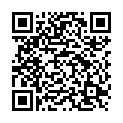|
|
|
| Module code: KI715 |
|
|
2V+2U (4 hours per week) |
|
5 |
| Semester: 1 |
| Mandatory course: yes |
Language of instruction:
German |
Assessment:
Written exam
[updated 30.07.2021]
|
E1983 Electrical Engineering and Information Technology, Master, ASPO 01.04.2019
, optional course, technical, course inactive since 08.10.2019
E1983 Electrical Engineering, Master, ASPO 01.10.2013
, optional course, technical
KI715 (P222-0052) Computer Science and Communication Systems, Master, ASPO 01.04.2016
, semester 1, mandatory course
PIM-WN15 Applied Informatics, Master, ASPO 01.10.2011
, semester 1, optional course, not informatics specific
|
60 class hours (= 45 clock hours) over a 15-week period.
The total student study time is 150 hours (equivalent to 5 ECTS credits).
There are therefore 105 hours available for class preparation and follow-up work and exam preparation.
|
Recommended prerequisites (modules):
None.
|
Recommended as prerequisite for:
KI820 Software Development for Communication Networks
[updated 03.07.2025]
|
Module coordinator:
Prof. Dr. Reinhard Brocks |
Lecturer:
Prof. Dr. Reinhard Brocks
[updated 01.04.2003]
|
Learning outcomes:
After successfully completing this course, students will be able to plan and formally describe (tele-)communication systems and create tests for such systems.
They will know how communication protocols work in principle. Students will be able to specify services and protocols with formal description languages and use protocol development tools.
[updated 30.07.2021]
|
Module content:
Formal and graphical (tele-)communication system description techniques
- Serialization techniques, in particular Abstract Syntax Notation One (ASN.1)
- Specification of message flows - Message Sequence Chart (MSC)
- System Behavior Specification and Description Language (SDL)
- Testing Communication Systems - Testing and Test Control Notation (TTCN-3)
- Requirement Specification - User Requirements Notation (URN)
[updated 30.07.2021]
|
Recommended or required reading:
Text books
- König, Hartmut: Protocol Engineering, Springer 2012, ISBN 3642291449
Specialist literature
- Dubuisson, Olivier: ASN.1, Communication between heterogenous Systems, Morgan Kaufmann, 2001, ISBN 0-12-633361-0, http://asn1.elibel.tm.fr/en/book/
Specifications
- ITU-T Recommendation Z.120: Message Sequence Chart (MSC), 02/2011
- ITU-T Recommendation Z.101: Specification and Description Language - Basic SDL-2010, 12/2011
- ITU-T Recommendation Z.161: Testing and Test Control Notation version 3: TTCN-3 core language, 07/2013
- ITU-T Recommendation Z.150: User Requirements Notation (URN) – Language requirements and Framework, 02/2011
- ITU-T Recommendation X.680: Information technology – Abstract Syntax Notation One (ASN.1): Specification of basic notation, 11/2008
[updated 30.07.2021]
|
Module offered in:
WS 2016/17,
WS 2015/16,
WS 2014/15,
WS 2013/14,
WS 2012/13,
...
|


